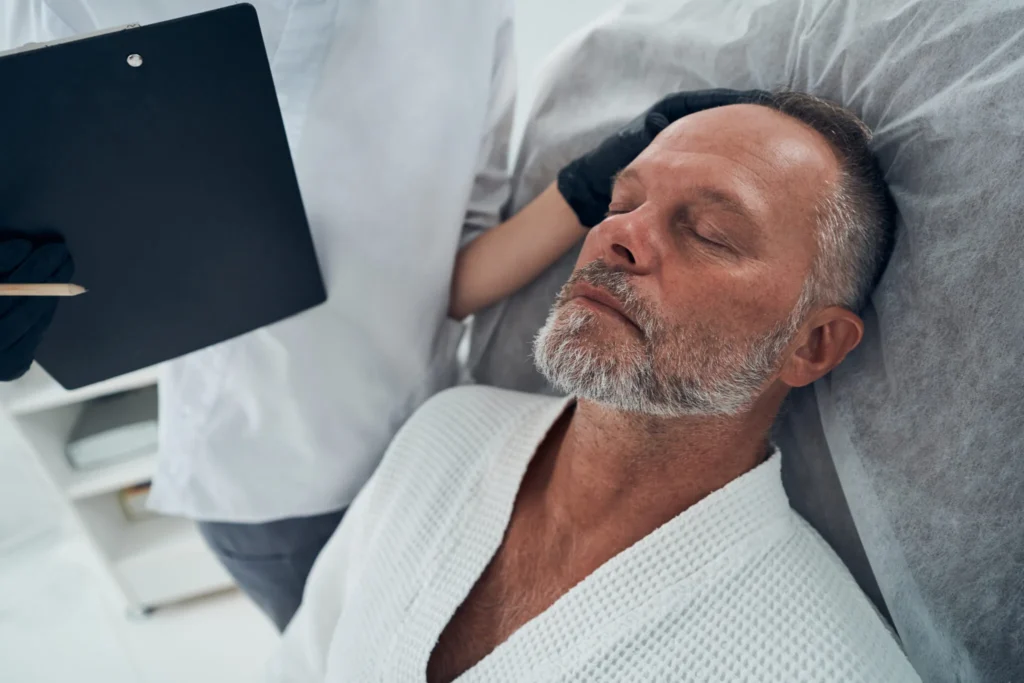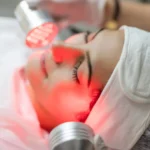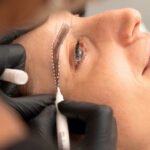Summary Sleep apnea can disrupt more than just your sleep – it can lead to significant hair loss as well. This article dives into the science behind how sleep apnea contributes to hair thinning, its impact on your health, and offers actionable solutions for those seeking recovery. Sleep Apnea and Hair Loss? We'll explore treatment …
Summary
Sleep apnea can disrupt more than just your sleep – it can lead to significant hair loss as well. This article dives into the science behind how sleep apnea contributes to hair thinning, its impact on your health, and offers actionable solutions for those seeking recovery. Sleep Apnea and Hair Loss? We’ll explore treatment options, expert tips, and recovery timelines to help you regain your hair health.

Table of Contents
Introduction
If you’re experiencing hair thinning or loss and suspect sleep apnea might be the cause, you’re not alone. Many individuals with sleep apnea notice hair loss as a side effect of the disorder. Sleep apnea interrupts your sleep cycles, increases stress levels, and affects hormonal balance, all of which contribute to hair thinning. In this article, we’ll explain how sleep apnea can cause hair loss and provide practical solutions for both conditions. By understanding this connection, you can begin the journey toward better sleep and healthier hair.
What is Sleep Apnea and How Does It Affect Your Health?
Sleep apnea is a disorder that causes breathing interruptions during sleep. There are three main types: obstructive, central, and complex. Each type disrupts the natural rhythm of breathing, leading to poor-quality sleep and a range of health issues.
- Obstructive Sleep Apnea (OSA): The most common type, where the throat muscles relax and block the airway.
- Central Sleep Apnea (CSA): A less common form where the brain fails to send signals to muscles that control breathing.
- Complex Sleep Apnea Syndrome: A combination of both OSA and CSA.
Common Symptoms of Sleep Apnea include loud snoring, choking sensations while sleeping, daytime fatigue, and frequent waking during the night. Over time, untreated sleep apnea can lead to serious health complications like high blood pressure, heart disease, diabetes, and stroke.
The Surprising Link Between Sleep Apnea and Hair Loss
It might come as a surprise, but sleep apnea can indeed cause or exacerbate hair loss. Here’s how:
- Disrupted Sleep Cycles: Sleep is crucial for hair growth. During the deeper stages of sleep, your body undergoes cell regeneration, which includes hair follicles. Sleep apnea prevents you from entering the deeper stages of sleep, thus interrupting this natural regeneration process.
- Stress and Hormonal Imbalance: The body’s stress response, triggered by disrupted sleep, increases cortisol levels. Elevated cortisol can lead to telogen effluvium, a condition where hair enters the shedding phase brain . Additionally, the hormonal imbalance caused by sleep apnea may lead to androgenetic alopecia, commonly known as male or female pattern baldness.
- Oxygen Deprivation: Sleep apnea reduces oxygen levels during the night. Oxygen is essential for healthy hair follicles, and prolonged deprivation can lead to follicle damage, causing hair to fall out.
- Does Sleep Apnea Cause Thinning Hair Directly? While there is no direct, one-to-one relationship, the combined effect of stress, hormonal disruption, and poor-quality sleep makes it more likely for people with sleep apnea to experience hair thinning or loss.
The Role of Stress and Cortisol in Sleep Apnea and Hair Loss
Stress plays a key role in sleep apnea and hair loss. When the body experiences a lack of restful sleep due to apnea episodes, it reacts by increasing cortisol production.
- Cortisol and Hair Growth: High levels of cortisol, the body’s primary stress hormone, can disrupt the hair growth cycle. Normally, hair follicles go through a growth phase, but when cortisol levels are high, hair follicles can prematurely enter the shedding phase, leading to telogen effluvium.
- Chronic Sleep Deprivation: Poor sleep due to apnea increases stress levels, which compounds the hormonal imbalance that negatively affects hair growth.
Managing your stress through relaxation techniques such as meditation, yoga, or breathing exercises can significantly improve both your sleep and hair health.
How to Combat Hair Loss Caused by Sleep Apnea
Treating both sleep apnea and hair loss requires a multi-pronged approach. Here are some strategies to address both issues:
Effective Treatment for Sleep Apnea
The primary treatment for sleep apnea is Continuous Positive Airway Pressure (CPAP) therapy, which involves wearing a mask during sleep to keep the airway open. Other treatment options include:
- BiPAP Machines: For more severe cases, this machine helps regulate airflow more effectively than a CPAP.
- Surgery: In some cases, surgery might be recommended to correct structural issues in the airway.
- Lifestyle Changes: Losing weight, avoiding alcohol before bed, and sleeping on your side can help alleviate sleep apnea symptoms.
Addressing Hair Loss: Topical Treatments, Medications, and Procedures
Once sleep apnea is being managed effectively, you can focus on reversing hair loss:
- Minoxidil: An over-the-counter topical treatment that helps stimulate hair growth.
- Finasteride: A medication that blocks the hormone responsible for hair thinning.
- Hair Transplant Surgery: For severe cases of hair loss, surgery may be an option to restore hair growth.
Lifestyle Changes to Improve Sleep Quality and Hair Health
- Sleep Hygiene: Ensure you follow a consistent sleep schedule, limit screen time before bed, and create a relaxing bedtime routine.
- Diet: A balanced diet rich in vitamins and minerals like biotin, iron, and vitamin D can promote healthy hair growth and improve overall health.
The Importance of a Healthy Diet for Hair Growth
Eating nutrient-rich foods supports hair health. Foods high in vitamins A, C, D, and E, as well as zinc and iron, can help hair follicles stay healthy. Make sure your diet includes:
- Leafy greens (rich in iron)
- Nuts and seeds (full of omega-3 fatty acids)
- Eggs (loaded with biotin and protein)
Expert Recommendations for Holistic Hair Care
- Regular scalp massages to increase blood circulation.
- Using gentle hair care products that do not strip the scalp of natural oils.
Safe Recovery Timeline and Tips for Hair Health After Treating Sleep Apnea

After beginning treatment for sleep apnea, it’s important to understand that hair recovery will take time.
- How Long Before You See Improvement? It typically takes 6-12 months after treating sleep apnea to notice improvements in hair health. However, the exact timeline depends on the individual’s response to treatment and other factors like diet and stress management.
- Recovery Tips:
- Be patient: Hair regrowth takes time.
- Follow your treatment plan consistently for both sleep apnea and hair health.
- Regular follow-up visits with your healthcare provider are important.
When Can You Expect to See Results from Sleep Apnea Treatment and Hair Restoration?
While sleep apnea treatment can improve sleep quality quickly, hair regrowth requires patience. On average, it can take 3-6 months for initial signs of hair regrowth to show, with full restoration taking up to a year or more depending on the severity of the hair loss.
Expert Opinions on Sleep Apnea, Hair Loss, and Treatment Options
“Treating sleep apnea is the first step in improving overall health, including hair restoration. By addressing the root cause of disrupted sleep, patients can not only sleep better but also prevent further hair damage.”
Additionally, dermatologists recommend combining CPAP therapy with minoxidil for the best results in managing both sleep apnea and hair loss.
Frequently Asked Questions
Can Sleep Apnea Cause Permanent Hair Loss?
While sleep apnea can cause significant hair thinning, it does not typically result in permanent hair loss. With proper treatment for sleep apnea, hair growth can often be restored.
Does Using a CPAP Machine Help Prevent Hair Loss?
Yes, by treating sleep apnea, CPAP machines can help improve sleep quality and reduce the stress and hormonal imbalance that leads to hair loss.
What Other Medical Conditions Contribute to Hair Thinning?
Other conditions like thyroid disorders, iron deficiency, and autoimmune diseases can also contribute to hair thinning.
How Do I Know if My Hair Loss is Related to Sleep Apnea?
If you have been diagnosed with sleep apnea and are noticing hair thinning, it’s a good idea to consult with a doctor or dermatologist to explore potential connections.
Conclusion
If you are struggling with both sleep apnea and hair loss, addressing the root cause of your sleep disorder is the first step toward restoring your health and hair. By using CPAP therapy, improving your diet, and managing stress, you can see improvements in both sleep quality and hair health.
Ready To Take Your Next Step
If you’re concerned about the connection between sleep apnea and hair loss, book a consultation with Dr. Uzma Irfan in Islamabad today to ensure a smooth and successful recovery for both your sleep and hair health.






